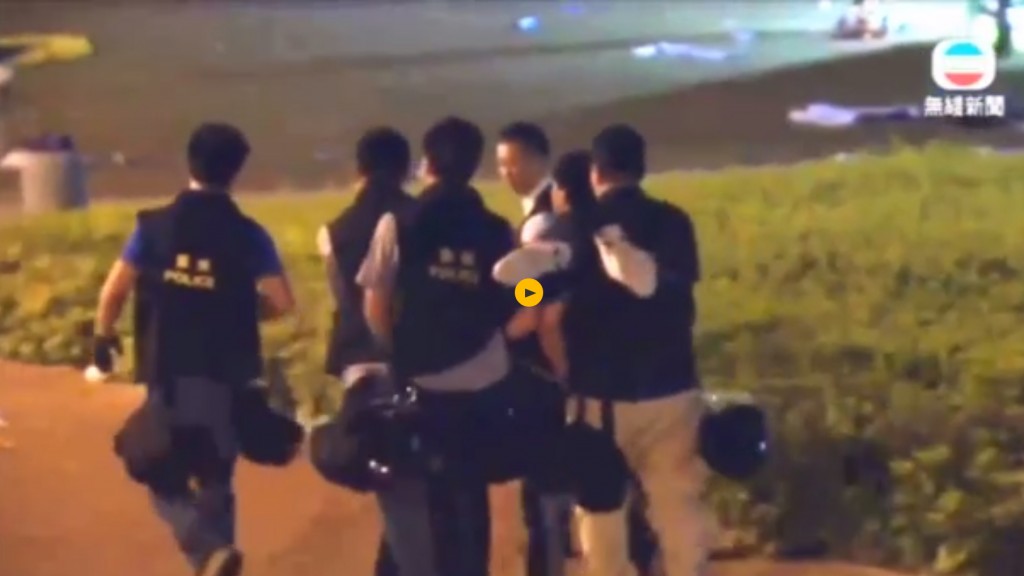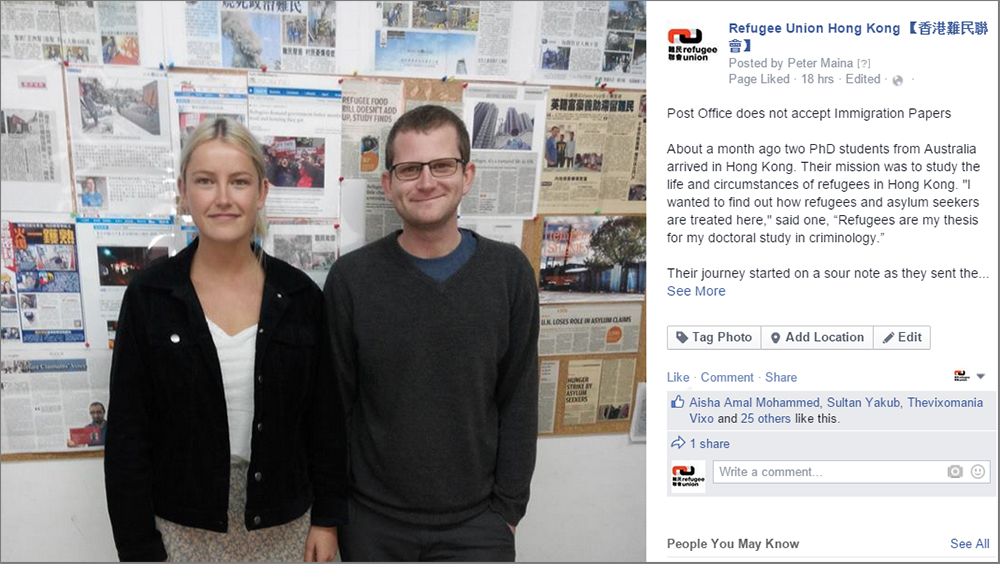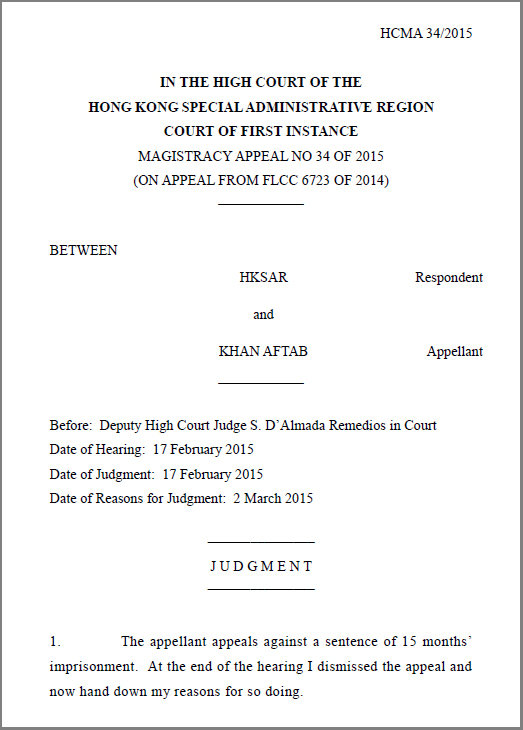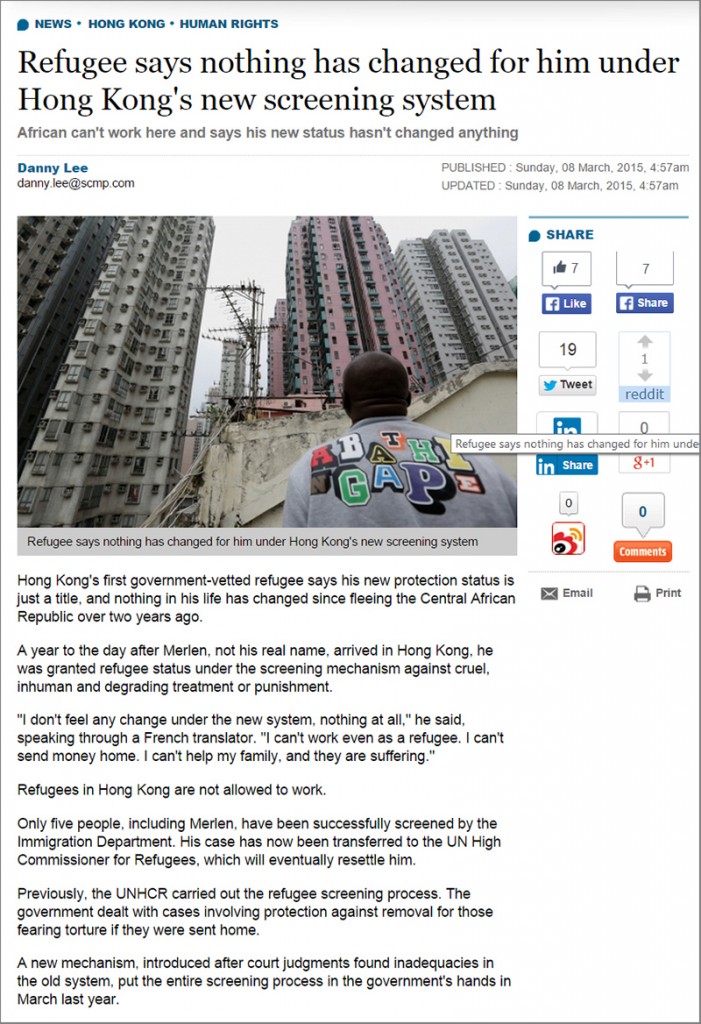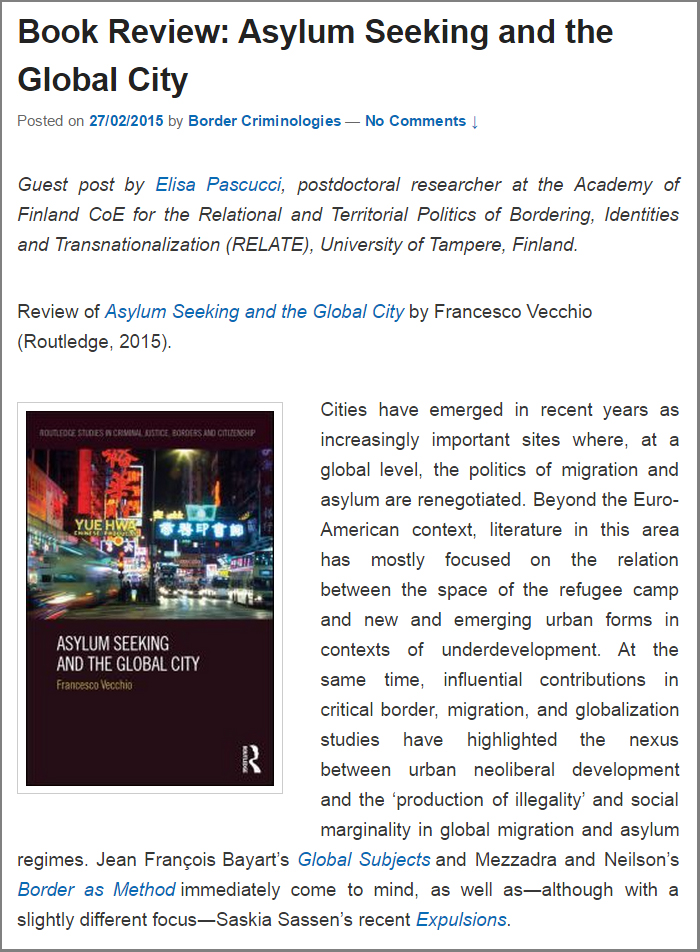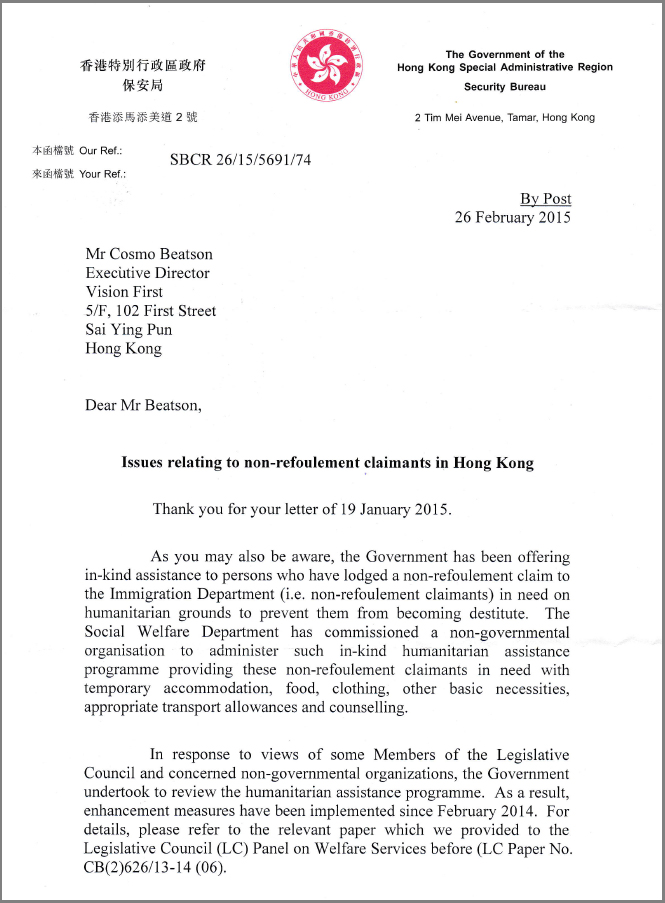Hong Kong Post Office does not accept Immigration Recognizance Papers
Mar 19th, 2015 | Immigration, Personal Experiences, Refugee Community | Comment
About a month ago two master students from Australia arrived in Hong Kong. Their mission was to study the life and circumstances of refugees in Hong Kong. “I want to find out how refugees and asylum seekers are treated here,” said one, “Refugees are my thesis for my doctoral study in criminology.”
Their journey started on a sour note after they sent a parcel to the Refugee Union. When it arrived, the Post Office issued a note advising to collect the parcel. The following morning at the Post Office a Refugee Union member produced his Identity Document to claim the parcel, but the clerk refused to accept his Recognizance Paper as a proof of Identity.
She remarked, “This is not a Hong Kong ID. We cannot give you this parcel as we don’t know you. I don’t know who you are and I don’t know what this document it.” It was very frustrating. We presented the Refugee Union membership card, but she was adamant that a Hong Kong ID card was required for collection. She called a senior who confirmed that either a Hong Kong ID card or passport was required, or else they would send the mail back to the sender.
We were unable to claim a parcel at a Hong Kong Government office by producing a document issued by Hong Kong Government after our passport were confiscated! Back at our desk we emailed the sender and explained the predicaments. They thought it bizarre that refugees hold a document that is meant to prove identity, but is not freely accepted in Hong Kong.
The Recognizance Paper with its archaic, imposing A4-size never goes unnoticed. It is meant to embarrass and demean refugees as an undesirable and unwelcome lot discriminated by the denial of legal status, even when Immigration takes a decade to determine claims. The classification of the unwanted starts with their criminalization – overstayer, outlaw and convict!
Shouldn’t the Post Office be briefed on and instructed to accept Recognizance Papers? Today there are over 10,000 such documents in circulation and refugees might need to produce them at one of the 129 post offices, where ignorant officers look aghast at bearers, “What is that? I don’t know what this is?”
The students found this story hard to believe, “In Australia we do not treat refugees like that. They enjoy their rights as human beings and live with dignity as everybody else. It’s a big shame what you go through. It is even doubtful that these arrangements are beneficial to Hong Kong in the long-term.”
An outsider’s perspective: Discriminatory treatment of refugees in Hong Kong
Mar 17th, 2015 | Housing, Immigration, Personal Experiences | Comment
Written by Christopher McNulty
Before coming to Hong Kong (HK) I tried to research the problems refugees and asylum seekers face in HK but was not able to find much documented on government websites. I was only really able to find media articles that had reported on HK refugees. When I arrived in HK the city is quite beautiful and lively with high rise buildings, restaurants on every corner and excellent public transport.
On my first day I attended the Vision First (VF) office. VF is a not for profit organisation trying to change the government’s ideology on how to deal with refugees locally. VF has well documented multiple cases of refugee housing that is well below humane standards and assists with human rights issues that occur to refugees in HK. An organisation which works with VF is called the Refugee Union (RU). The RU is a unified group of refugees fighting for a better quality of life for all refugees and their families.
On the same day I attended one of the fortnightly RU meetings. Refugees were discussing how they want to be able to work, have a good quality of life, and lastly, ensure their children are given every opportunity to succeed in life. The refugees explained that even after the government deems an individual as a legitimate refugee, they have to hand in their passport, they are not allowed to work, and will receive social welfare provided by the HK government. I did not believe what I was hearing. Asylum seekers escape their host countries due to the threat or fear of persecution and come to countries and regions such as HK to have a better life, only to find that there might not be great living conditions in HK. It is against the law to work in Hong Kong if you are a refugee (Chiu, 2012). Why wouldn’t the HK government want refugees to become permanent residence and contribute to the community instead of continuing the cycle of social welfare payments?
As the weeks went on I heard different stories of the reasons why refugees sought refuge in HK, from risk of persecution, to the risk of death in their country. A common theme seemed to emerged, that refugees saw HK was a great culturally diverse, rich destination that would be able to give refugees a second chance in life and a great place to raise their children while escaping persecution.
I think the most challenging part of my time in HK was visiting the slums where refugees were living in the New Territories. These houses (if they can be called that) are in no way liveable. Some huts are brick interior but then have metal sheeting to extend the living quarters. Other shacks are made entirely of wood and advertising boards. The images below show the primitive kitchen area where the occupants are trying to defrost a chicken and the toilet area nearby with wooden timber panels with no knobs utilised as a door. The lighting within the complex is portable lighting through visible wiring. The family had a baby boy and all I could think was how much this family would be trying to give every opportunity in life to their child and this is the living conditions they have to deal with.
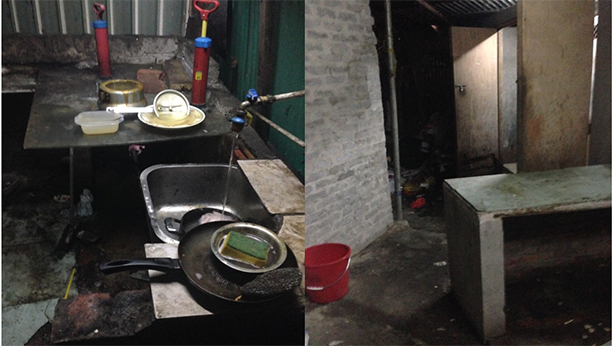
The next house I visited was the shack that had burnt down the week before. Looking at the structure of the housing around the refugee home that burnt down, they were bricked houses which had minimum damage from the flames. Residents lived there. Looking at the burnt pile of possessions, it was clear that the housing was primarily made up of metal sheeting which is weak and had no chance of withstanding the blaze.
It was so sad seeing refugee families’ possessions destroyed in a fire. As refugees don’t receive appliances and clothing through the government, they have to find these items by going through the garbage and from charities. This means this fire would have destroyed all these families’ items which are hard to replace.
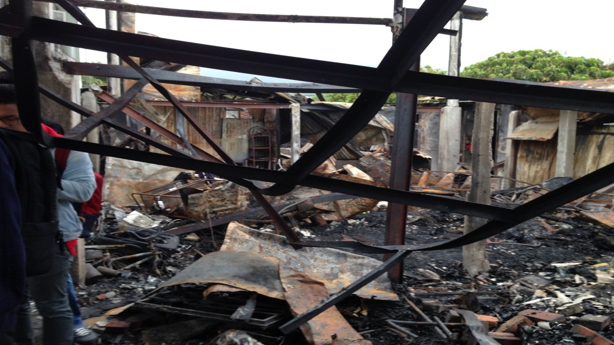
During my last week in HK I attended another meeting of the RU. They had just received notification from the Social Welfare Department (SWD) that they have investigated the matters raised by the RU, and advised the system is working correctly and there is no need to change. After hearing the response from SWD, I honestly believe there is a major gap between what SWD believes is occurring compared to what is really happening. From the houses I saw they are not liveable and no place to raise a family. Again, during the meeting, I heard numerous refugees speak about how they want to work and contribute to HK. These are motivated people who want to work but are not being given the chance. There is a continuous cycle occurring of refugees in HK because as refugees continue to come to HK to escape persecution, they become dependent on social welfare. As refugees have children they become dependent on social welfare, and their children, and so on. If laws are not changed, refugees will always be dependent on the government if not allowed to work.
In Australia once an asylum seeker is deemed a legitimate refugee, they have the right to permanent residency, social welfare, and most importantly the right to work (Department of Human Services, 2014). This means, in Australia once the government has deemed an individual as a legitimate refugee, they are entitled to become Australian citizens, and they are entitled to social welfare, including public housing and schooling. And most importantly, they are entitled to work. In comparison to HK, there are many differences between how both HK and Australia deal with refugees.
In conclusion, my time in HK has been quite an eye opener. The problems with refugees can be seen as well hidden from the HK public, including the international public. In saying that, over the last few years as the media have reported more on the problems faced by asylum seekers, the public have become more aware. Hopefully as more media attention occurs in the future, this will hopefully influence the public to influence the HK government to rethink the way they approach refugee policy in HK.
Refugee Union successfully lodges BOR 2 claims with Immigration Department
Mar 16th, 2015 | Immigration, Legal, Refugee Community | Comment
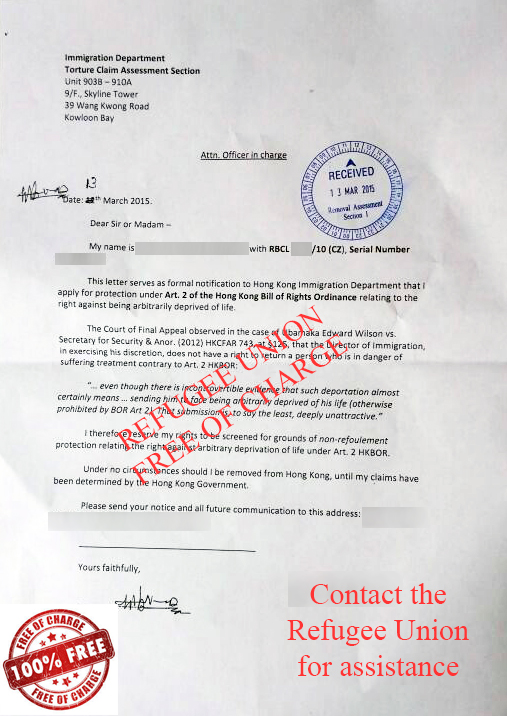
Vision First promotes “BOR 2 claim”
Mar 11th, 2015 | Detention, Immigration, Legal, VF Opinion | Comment
Vision First reports that for almost a year some progressive legal professionals advised refugee clients to raise a “BOR 2 claim” together with their protection bids against torture, cruelty and persecution as prescribed under the Unified Screening Mechanism (USM).
“BOR” is short for the Hong Kong Bill of Rights Ordinance (Cap 383), wherein Article 2 describes certain fundamental human rights: “Every human being has the inherent right to life. This right shall be protected by law. No one shall be arbitrarily deprived of his life.”
HKBOR Article 2 (“BOR 2”) is a broad safeguard protecting the “right to life”. In brief, it defines that sentences of death may be imposed only for the most serious crimes and ought to be carried out pursuant to a final judgment rendered by a competent court. Anyone sentenced to death shall have the right to seek pardon or commutation of the sentence.
Put simply, every human being has an inherent right to life which can only be forfeited in the administration of justice by a legitimate court that includes an appeal process. Amnesty of the sentence of death may be granted in all cases. It follows that no person can be unjustly killed, summarily executed, or fall victim to extra-judicial killing without legal proceedings.
The Hong Kong Bill of Rights is binding on all public authorities. In particular, the Court of Final Appeal found in the “Ubamaka judgment” (FACV 15/2011) that it may be unlawful for the Director of Immigration to exercise his discretion in favour of deporting refugees who might face arbitrary deprived of life – a deeply unattractive prospect contrary to article 2 of the Hong Kong Bill of Rights.
In light of USM having rejected 99.9% of claims in 2014, Vision First advises refugees to consider including the BOR 2 claim in their letters to Immigration raising asylum claims. By reserving the right to be screened for a risk of arbitrary deprivation of life, claimants have additional grounds of non-refoulement protection other than the three prescribed grounds.
Vision First reports that currently the Immigration Department will in most cases stay claims (whether at screening or decision stage) once claimants reserve the right to be assessed also for BOR 2. To date Immigration has not indicated in writing what their stance is regarding this new claim. This has the practical result of putting on hold such asylum claims until the USM is expanded to include an assessment for the arbitrary deprivation of life.
Consequently, the 826 refugees who had USM claims rejected at appeal in 2014 could theoretically lodge BOR 2 claims with the Immigration Department. It is reported that from 11 March 2015 detainees in Castle Peak Bay Immigration Centre will be permitted to file BOR 2 claims.
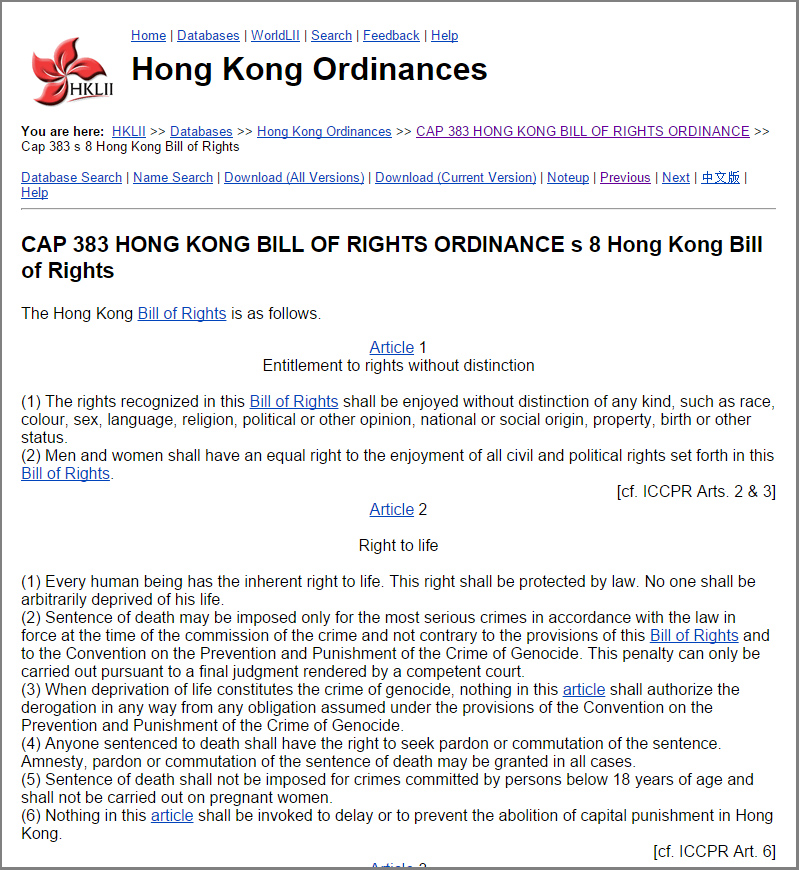
Should victims of unlawful detention settle for half damages?
Mar 9th, 2015 | Immigration, Legal, VF Opinion | Comment
Refugees have every right to seek sanctuary in Hong Kong where the domestic legal framework makes overtures of asylum protection to individuals fleeing torture, cruel inhuman degrading treatment and persecution. Whether claims are eventually substantiated or not by the Immigration Department is entirely a different matter.
Vision First advances the view that every claimant must be treated with utmost respect and every claim must be approached on the premise that it is genuine unless and until it is proven that it cannot be substantiated by the claimant with recourse to proper legal remedies, if necessary.
It is regrettable that immigration detention is utilized to discourage the lodging of claims, the pursuit of asylum bids, arguably to encourage the voluntary departure of those persons who are daunted by the punitive and hostile reception. Such techniques, if widespread and arbitrary, are insensitive to the experiences of those seeking asylum and are contrary to the spirit of asylum.
Protracted detention deprives claimants access to information and opportunity to purse their claims with the assistance of independent legal advisors. Prolonged detention pending determination of claims is contrary to the principle that a person can only be detained for a period that is reasonable in all the circumstances for the purpose of effecting removal or deportation.
On 17 March 2014, Vision First reported the landmark case of Mr. Ghulam Rbani, who won a Court of Final Appeal case (FACV 15/2013) against the Director of Immigration for damages for false imprisonment, claiming that he had been unlawfully detained at the Castle Peak Bay Immigration Centre (CIC). Simply put, the judgment opened the way for similar plaintiffs to be compensated with 1000 HK$ a day for the deprivation of liberty after lodging asylum claims.
Vision First is of the view that all claimants who were detained longer than 4 to 6 weeks in CIC should seek compensation not only as personal reparation for unlawful imprisonment, but particularly to discourage the arbitrary detention of those who trust Hong Kong government to protect them from torture, abuse and persecution.
In light of the above, the below letter by the Department of Justice raises questions. The plaintiff was allegedly unlawfully detained for 120 days and rightly demanded 120,000$ in compensation. The claimant laments, “When I was in CIC, [Immigration officers] gave me pressure every day to go back to my country. But I told them I am waiting for CIDTP case. I cannot go back because of danger.” The authorities are haggling over the price of injustice and offered half the amount.
Why should victims of unlawful detention settle for 50 percent?
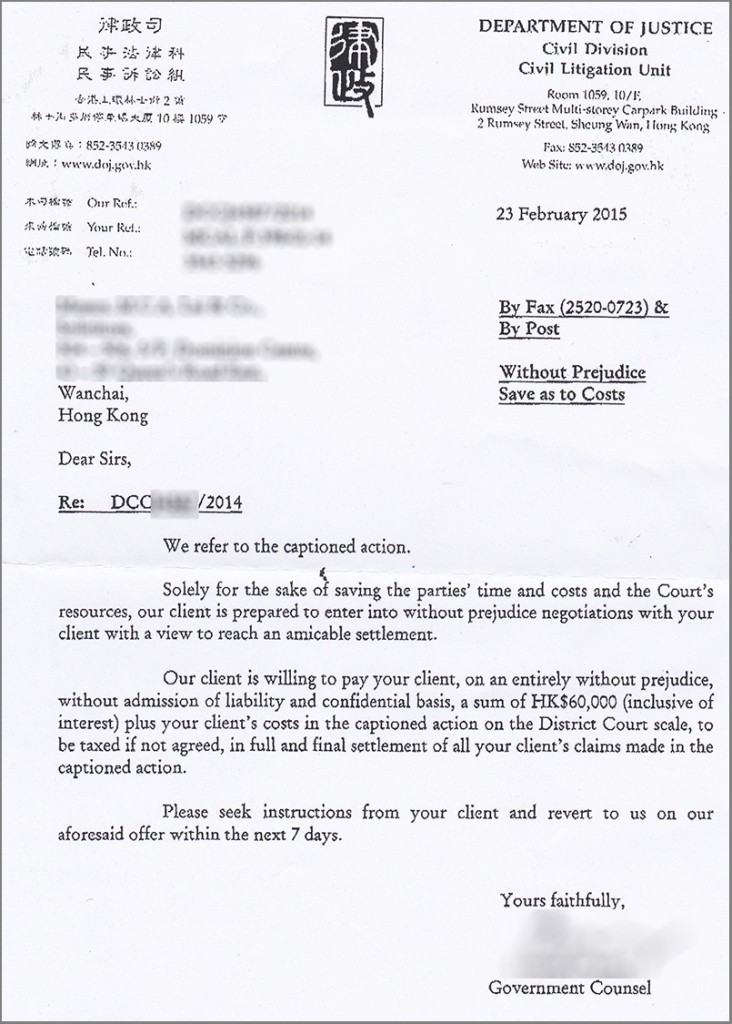
Refugee says nothing has changed for him under new screening system
Mar 8th, 2015 | Immigration, Media, Welfare | Comment
Book review: Asylum Seeking and the Global City
Mar 5th, 2015 | Crime, Detention, Immigration | Comment
Security Bureau reply to Vision First on 26 Feb 2015
Mar 3rd, 2015 | Housing, Immigration, Legal, Welfare | Comment
Hong Kong needs a credible, transparent and expert-driven USM
Mar 3rd, 2015 | Immigration, Rejection, VF Opinion | Comment
The Unified Screening Mechanism (USM) will reach its first-year landmark on 3 March 2015 and the results achieved appear rather underwhelming and disheartening for refugees seeking the protection of Hong Kong Government. Immigration Department reports that as of 12 February 2015 five claims were substantiated, which Vision First understands to include 2 minors protected with their family.
The refugee community is concerned that in 23 years since the “UN Convention Against Torture” (CAT) was extended to Hong Kong in 1992, Immigration recognized only 28 cases as tallied by the South China Morning Post. Vision First sighted several Notices of Decision that included no less than 10 children counted as individual cases, thus further diminishing the impact of such unimpressive results.
Clearly statistics paint an incomplete picture, yet they are essential to evaluate the fairness of a screening process that accepted 5 claims and rejected 826 between March and December 2014 – a 0.60% acceptance rate that is deeply discouraging for 9618 individuals whose claims were outstanding at the end of last year. Some might suggest discouragement is the target here.
Granted that Immigration officers have at best one year experience with USM, we can only hope that high standards of fairness apply to determinations that are, “of momentous importance to the individual concerned. To him, life and limb are in jeopardy and his fundamental human right not to be subjected to torture is involved. Accordingly, high standards of fairness must be demanded in the making of such a determination.” (Court of Final Appeal “Prabakar” judgment, 2004)
“How do Immigration officers assess the situation in my country?” questioned an African refugee, “They don’t understand simple geography…. I have no confidence. Officers are not country experts. They print maps from the internet and learn from general websites that don’t explain the deep-rooted problems I faced. Shouldn’t I be worried about the quality of assessments?”
An Indian refugee said he had claims of police corruption in India rejected on the basis that India was a democracy and government websites called for a corruption-free administration in which offenders would be prosecuted to the fullest extent of the law. The claimant was faulted for having failed to report to the Police Anti-Corruption Bureau that village constables had drawn false charges against him allegedly upon the instigation of a rich and powerful land owner. Should he be deported?
There is a vast difference between what governments represent on official websites and law and order as implemented in the streets, where the enforcement action of anti-corruption bodies might not be taken seriously. That is the difference between theory and reality, the divergence between the rule of law and its application in the dark corners where human weakness prevails.
For that matter, police abuse in the cover of darkness isn’t unknown in developed countries.
